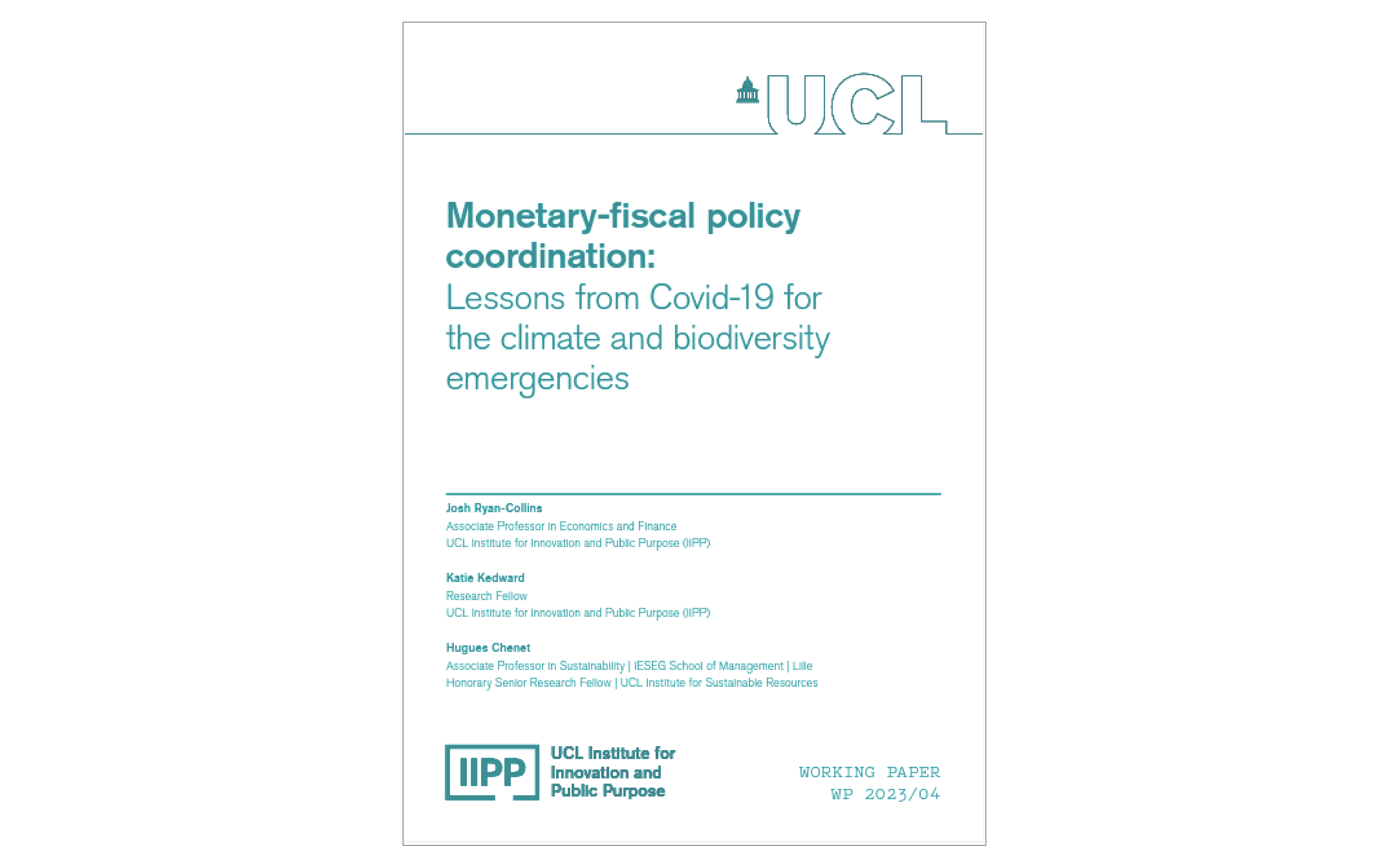Monetary-fiscal policy coordination: Lessons from Covid for the climate & biodiversity emergencies
Authored by Dr Josh Ryan-Collins, Katie Kedward and Dr Hugues Chenet

28 March 2023
UCL Institute for Innovation and Public Purpose (IIPP) Working Paper Series: IIPP WP 2023-04
Authors:
- Josh Ryan-Collins | Associate Professor in Economics and Finance | UCL Institute for Innovation and Public Purpose (IIPP)
- Katie Kedward | Research Fellow | UCL Institute for Innovation and Public Purpose (IIPP)
- Hugues Chenet | Associate Professor in Sustainability | IESEG School of Management | Univ. Lille, CNRS, UMR 9221 - LEM - Lille Economie Management, F- 59000 Lille, France and Honorary Senior Research Fellow | UCL Institute for Sustainable Resources
Reference:
Ryan-Collins, J., Kedward, K. and Chenet, H. (2023). Monetary-fiscal policy coordination: Lessons from COVID-19 for the climate and biodiversity emergencies. UCL Institute for Innovation and Public Purpose, Working Paper Series (IIPP WP 2023-04). Available at: https://www.ucl.ac.uk/bartlett/public-purpose/wp2023-04.
Abstract:
The climate and biodiversity emergencies require structural economic shifts that will necessitate strategic coordination between macroeconomic policy authorities. The COVID-19 episode saw the implementation of monetary-fiscal policy coordination not seen since the 1970s to avert catastrophic damage to economies caused by pandemic-induced lockdowns. Recent developments suggest these were best understood as emergency short-term responses rather than marking a shift in the consensus that insists on a separation between monetary and fiscal policy spheres that might support a more coordinated policy approach to addressing environmental breakdown. We review the most prominent examples of coordination in high income and emerging market economies in the 2020-2021 period, focussing on the creation of fiscal space and targeted provision of liquidity to strategic sectors of the economy. We consider the lessons and opportunities these policy innovations raise for the development of a precautionary macroeconomic policy approach which seeks to reduce the threat of ecological tipping points, prevent catastrophic losses, and support the Net-Zero transition.
 Close
Close

